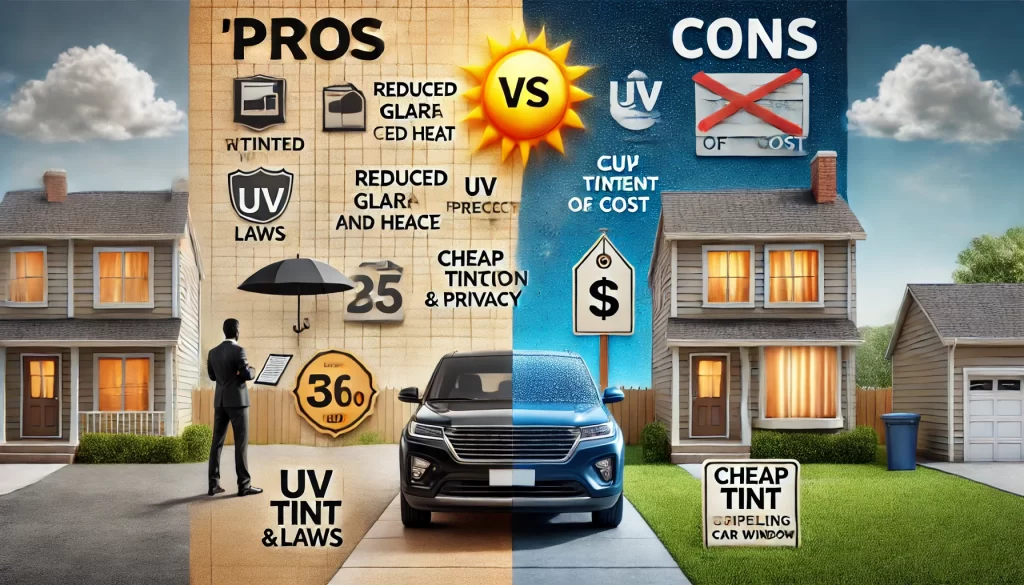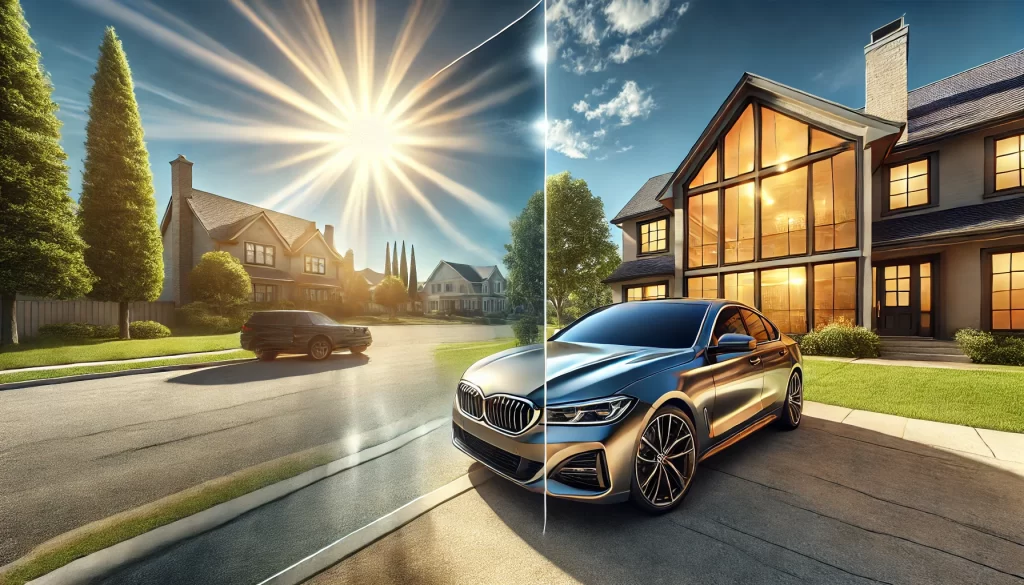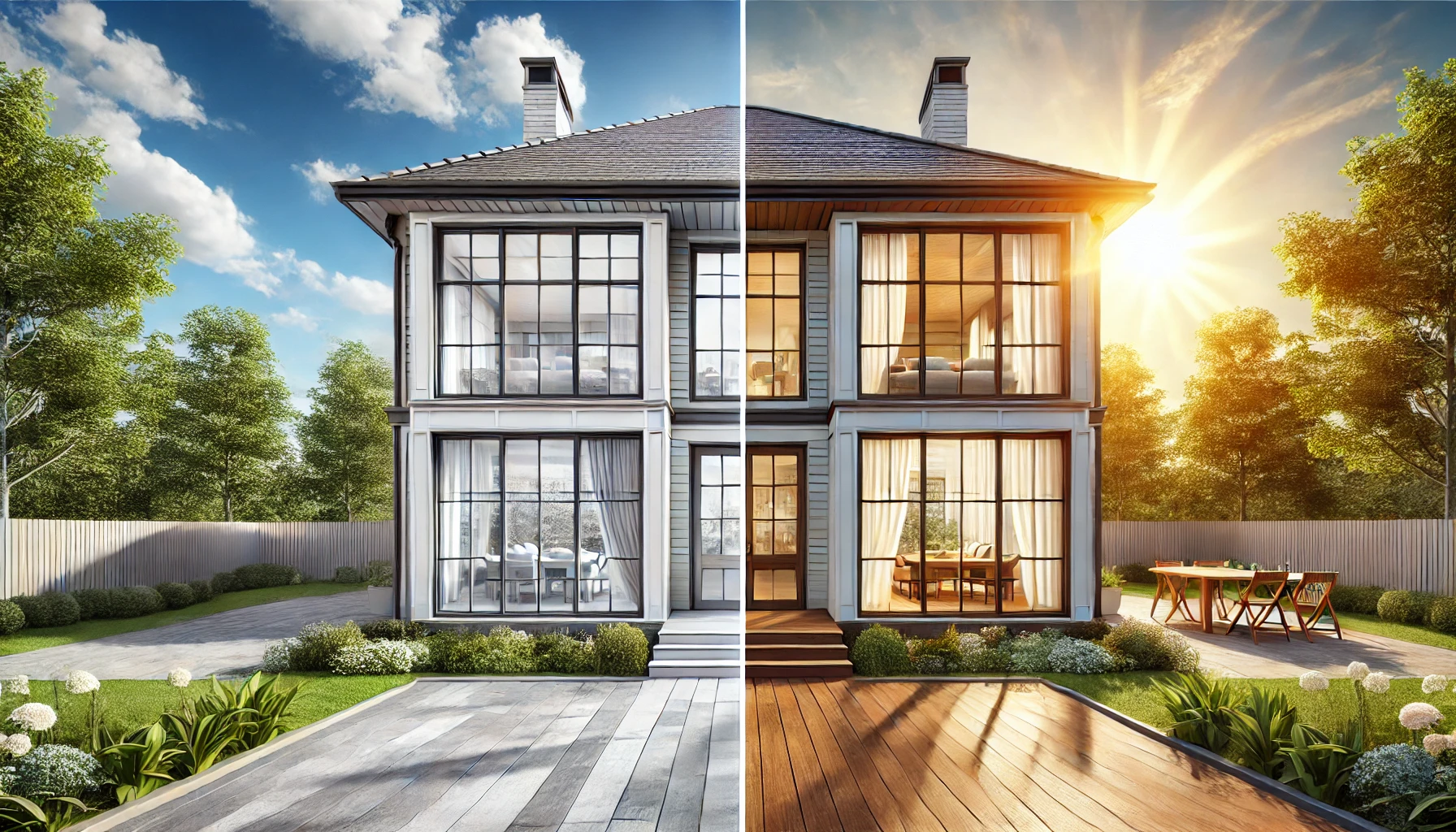Table of Contents
Tinting your windows not only adds privacy and style to your car or home but can also help block UV rays and reduce heat. Many ask, “How much does it cost to tint your windows?” This is a crucial question because prices vary depending on several factors. In this article, we’ll uncover the hidden costs and give you an idea of what to expect, helping you make an informed decision.
What Affects the Cost of Window Tinting?

Several factors come into play when figuring out how much does it cost to tint your windows. These can significantly impact the price you pay. Here are some of the critical aspects that influence the overall cost:
1. Type of Tint Film
One of the most significant factors in determining the cost of window tinting is the type of film used. Several window tint films range from basic dyed to more advanced ceramic films. Each type offers different benefits and comes at a different price point.
- Dyed Film: The most affordable option, costing around $50 to $150 for a whole car. It provides essential UV protection but may fade over time.
- Metalized Film: This type offers better durability and heat resistance, costing around $100 to $200.
- Ceramic Film: The most advanced option, with superior heat rejection and clarity. It typically costs between $200 and $400 for a whole car.
2. Size of the Windows
Another factor that impacts how much does it cost to tint your windows is the size and number of windows you need to cover. Tinting a large SUV or a house with many windows will naturally cost
- Cars: The price range for tinting car windows is usually between $100 and $500, depending on the car size and type of film chosen.
- Homes: For homes, window tinting may cost between $5 to $8 per square foot. A whole-house project can run between $300 and $1,000 or more, depending on the number of windows.
3. Professional Installation vs. DIY
When considering the cost of tinting your windows, you must decide whether to do it yourself or hire a professional. While DIY kits are cheaper, typically ranging from $50 to $100, they may not offer the same quality and durability as professional installations. Hiring a professional may cost more, but it ensures a cleaner, longer-lasting result.
4. Local Labor Rates
Prices for window tinting can vary depending on where you live. You may pay more for professional installation in larger cities with higher labor costs than in smaller towns. It’s essential to get quotes from local providers to compare prices.
Pros and Cons of Window Tinting

Before deciding whether to tint your windows, weighing the benefits and drawbacks is helpful. Understanding these can also influence how much you’re willing to spend.
Benefits of Window Tinting
- UV Protection: One of the primary benefits of window tinting is that it blocks harmful UV rays, protecting your skin and the interior of your vehicle or home.
- Heat Reduction: Tinted windows can reduce heat inside your car or home, making it more comfortable during hot months.
- Increased Privacy: Tinted windows offer privacy by quickly preventing people from seeing inside your car or home.
- Improved Aesthetics: Window tinting can give your vehicle or home a sleek, stylish look.
Drawbacks of Window Tinting
- Cost: Depending on the type of film and installation method you choose, the cost can add up quickly.
- Potential Legal Issues: Some areas have strict laws about how dark your car windows can be tinted. Be sure to check your local regulations.
- Quality Concerns: If you opt for cheaper materials or DIY, the tint may not last as long or provide the same level of protection.
Is Professional Tinting Worth the Cost?
For many, the question isn’t “how much does it cost to tint your windows?” but whether professional installation is worth it. Here’s a breakdown of why going pro might be the better option.
Professional Quality and Warranty
While DIY kits are cheaper, professional tinting services often provide a higher-quality finish. Most professionals offer warranties that cover the film and installation, ensuring that your tint will last for years without bubbling, peeling, or fading.
Legal Compliance
One significant advantage of professional tinting is that the installer will know the local laws regarding tint darkness. They can ensure your tint complies with regulations, saving you from potential fines or legal trouble.
Also Read: How Much Does It Cost to Get Rid of Bed Bugs? Shocking Truth Revealed!
How to Save Money on Window Tinting
If you’re looking to save money, there are a few ways to lower the cost of tinting your windows without compromising on quality.
1. Compare Quotes
Don’t settle for the first quote you receive. Contact several local professionals for different price estimates. Be sure to ask about any ongoing promotions or discounts.
2. Choose a Mid-Range Tint
Consider a mid-range option instead of choosing the cheapest or most expensive film. Metalized or hybrid films provide good heat and UV protection without the high cost of ceramic films.
3. Tint Only Essential Windows
You don’t have to tint every window in your car or home. Consider tinting only the windows that face the most sunlight or are visible to passersby.
So, how much does it cost to tint your windows? The answer depends on several factors, including the type of tint, the size of the windows, and whether you choose a DIY kit or professional installation. On average, you can expect to pay between $100 and $400 for car window tinting and between $300 and $1,000 for homes, depending on the project size and type of tint film.
Professional tinting is often worth the extra cost if you want long-lasting results and legal compliance. However, you can still save money by comparing quotes, choosing a mid-range film, and tinting only the essential windows.
Understanding these factors will better prepare you to make an informed decision and get the most value from your investment in window tinting.




